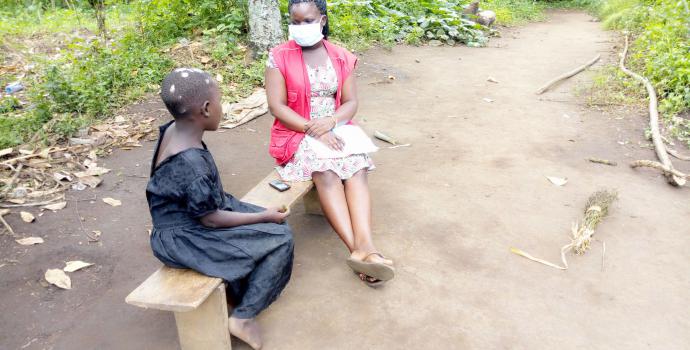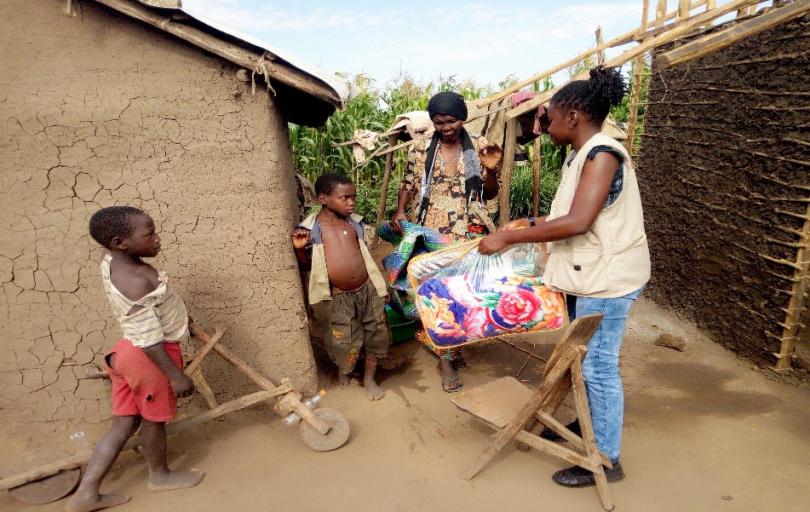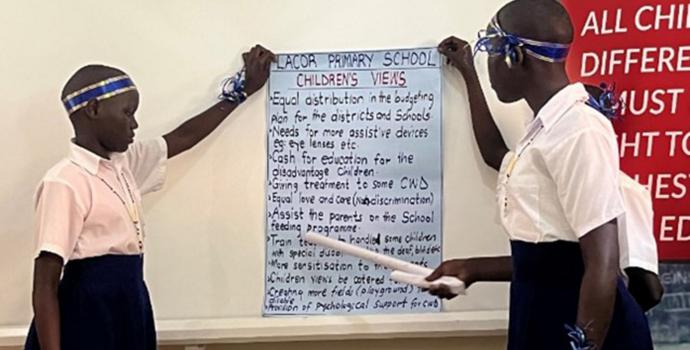“COVID separated me from my parents”

When Susan*s parents decided to go back to eastern DR Congo, they thought it would be just a brief trip. As refugees in western Uganda, they wanted to go and check on their fields and relatives, then return to their children in the refugee settlement they now call home.
They left Susan*, aged 12, and her three siblings in the temporary care of their neighbour and close friend.
That was in March. Just a few days later Uganda shut its borders, as part of efforts to try and stop the spread of COVID-19.
Susan*s parents have been stuck in DRC since then, and unable to come back.
“I miss them so much,” says Susan*, who now hasn’t seen them for more than three months.
Making the situation worse, Susan*s parents have the family’s formal refugee registration cards with them. Without the cards the children couldn’t get the monthly distribution of food and cash from the World Food Programme (WFP) which the family normally relies on.
“We were depending on our neighbour for every support – food, bedding, shelter – which was a bit straining on their family,” says Susan*. “Our neighbour has eight members in the family. Plus the four of us means there are now 12.”
The family had to reduce their daily amount of food. “We just ate once a day or twice with little portions.”
Getting desperate, the children went to report their situation and ask for help at the home of the chairperson of the local council, the LC1. “The chairman promised to support us,” Susan* says.
The LC1 quickly contacted Save the Children and we sent a case worker to the home to assess the situation.
With support from UNICEF, Save the Children’s child protection team is engaging closely with local community structures to identify and support the most vulnerable and at-risk children. There are more than 36,000 refugee children in Uganda who are alone or separated from their parents.
When the COVID-19 lockdown began, numerous families were separated as they were across borders and unable to return, or in a different settlement when the ban on public transport and movement within Uganda came into effect.
“The Save the Children case worker came and interviewed us one by one,” says Susan*. “We narrated everything to him. He wrote down our concerns, counselled us and assured us that he would return.
“After two days I saw a Save the Children vehicle approaching. The people in the car brought for us blankets, sleeping mats, soap, basins, bedsheets, clothing, sanitary materials, beans, maize flour…
“The case worker linked us to the Office of the Prime Minister (OPM) and they gave us a letter which allowed us to temporarily receive food from WFP while we wait for our parents to be able to come home.”
“I still miss my Mum and Dad, but thanks to God and Save the Children we now have beddings, food and basic needs.”
* Susan wants to tell her story but we changed her name to protect her identity
Below: Save the Children's team distributes bedding, food and other essentials





